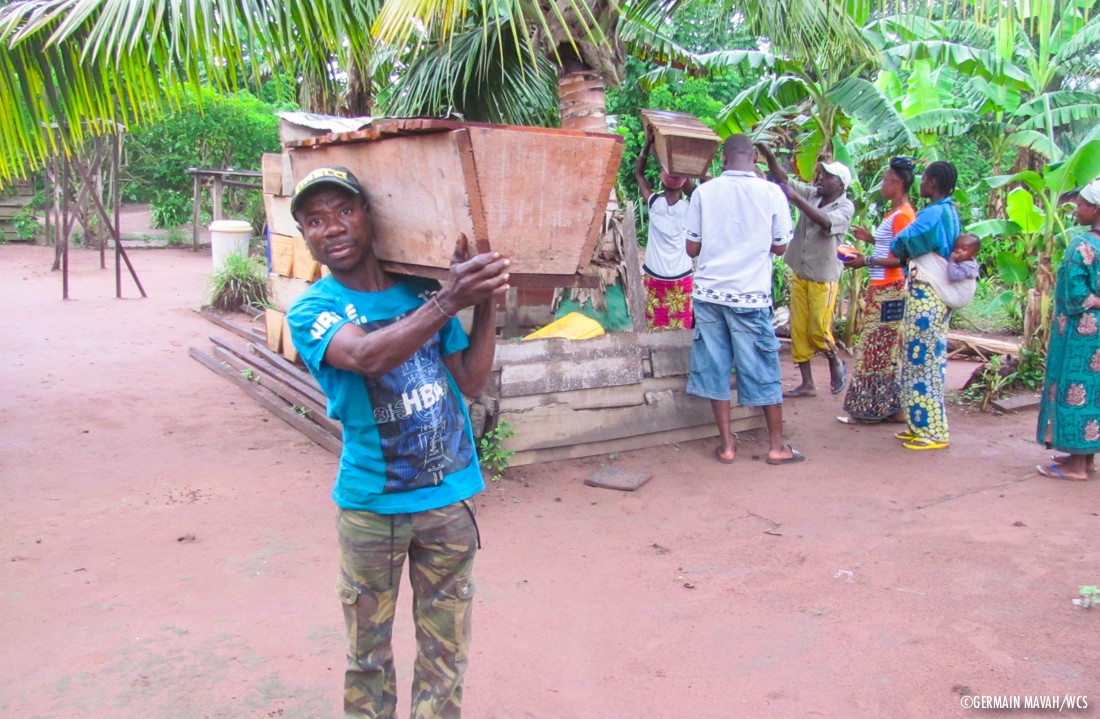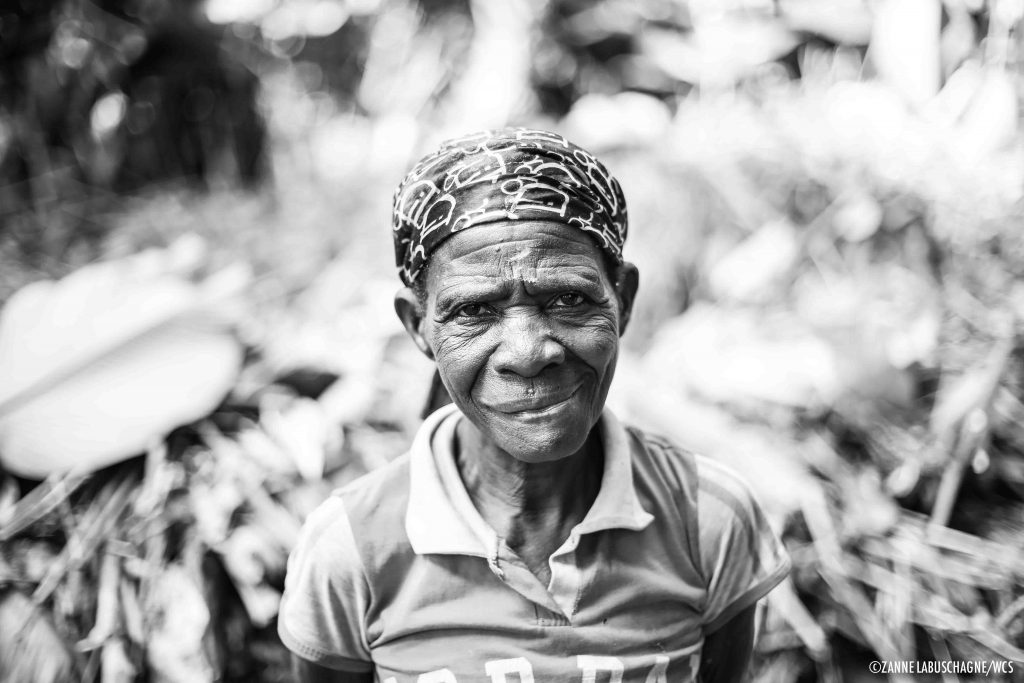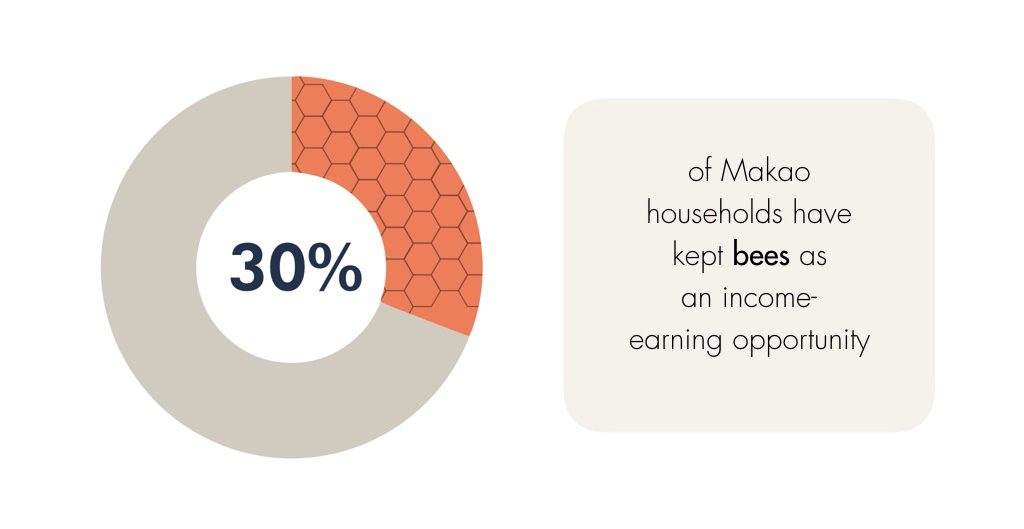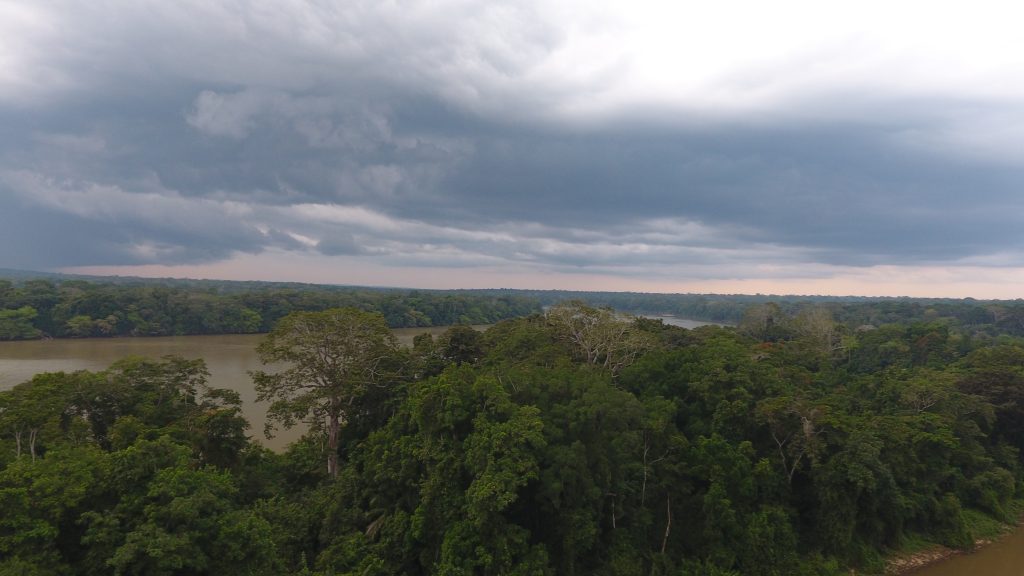
HONEY PRODUCTION STRENGTHENS LIVELIHOODS IN NORTHERN CONGO
The harvest and sale of honey produced by wild bees generates income, and reduces pressures on families living near the Nouabale-Ndoki National Park in northern Congo to turn to killing wildlife as a source of cash income.
Finding ways to increase incomes and improve the living standards of families living in isolated areas is a challenge throughout the world. However, it is especially important in the communities living on the periphery of the Nouabale-Ndoki National Park (NNNP), within the Sangha Trinational Zone (STZ), a UNESCO World Heritage Site. The STZ extends over 25,000 square kilometres, in Cameroon, the Central African Republic and the Republic of Congo, and is one of the largest intact forest landscapes in Central Africa, and acts as a stronghold for many important forest species. Since 2014 the Nouabale-Ndoki National Park has been managed by the Nouabale-Ndoki Foundation, a public-private partnership between the Congolese Goverment and Wildlife Conservation Society Congo Program.

The stewardship of local people, and the isolation of the area from centers of economic activity are primarily responsible for the intact state of forest ecosystems. However, in recent decades, logging and mining activities have expanded, reducing the isolation and undermining the role of local people as stewards. The expansion of industrial-scale productive activities reduces the plant and animal species available for local use, by degrading forest ecosystems. Simultaneously, the granting of exclusive concessions to timber and mining companies limits the ability of people to employ productive strategies based on the ability to change location when wildlife and other resources become scarce. At the same time, people’s cash requirements grow, as they need to purchase food to replace products that they previously obtained from nature, and seek to improve their quality of life by seeking education and improved health care.
”By providing people with an income-earning opportunity, honey production diversifies sources of local people's incomes and reduces the pressure on bushmeat hunting as one of the most important ways of earning cash. - Dr. Germain Mavah - Community Conservation Director, Nouabale-Ndoki National Park
In the northern Congo village of Makao, 40 kilometers west of Nouabalé-Ndoki National Park (NNNP), WCS has assisted households to develop honey production as a new and potentially important source of income. Households build hives, where they establish new colonies of wild bees, and harvest the resulting honey for sale. The program began in 2015, with four beekeepers managing nine hives. Today, 54 households are managing 123 hives. While WCS initially provided hives, villagers have now mastered building the hives themselves, and have constructed 24 of the 123 hives currently in use.

Honey is processed and stored in easily transportable containers, so that, in addition to being sold in local markets, it can also be sold in market places further away, for example to tourists visiting NNNP. Villagers are also working on developing other honey-related products for sale, including candles and beeswax. Because the project is new and still expanding, WCS and villagers have not been able to conduct a systematic assessment of the impact of honey production on the incomes, and resulting quality of life, of participating households. However, based on monitoring data, we estimate that a beekeeper with 10 hives, selling 30 liters of honey per year, at the going price, in Makao, of $2.00/liter, can earn a gross annual income of $431.00.

When productive options are limited, local people often intensify their use of the forest, to obtain bushmeat and other products that they can sell for cash. Unfortunately, this intensification of forest use coincides with a decline in the ability of forest ecosystems to withstand pressure. Therefore, a sustainable strategy to conserve intact forests needs to include the creation of productive opportunities that do not involve increasing the pressure that people make on forest ecosystems. Honey produced by wild bees is a forest product that has long been used by local people. By introducing hives and hygienic processing, its production can be intensified sustainably to respond to a market demand.

